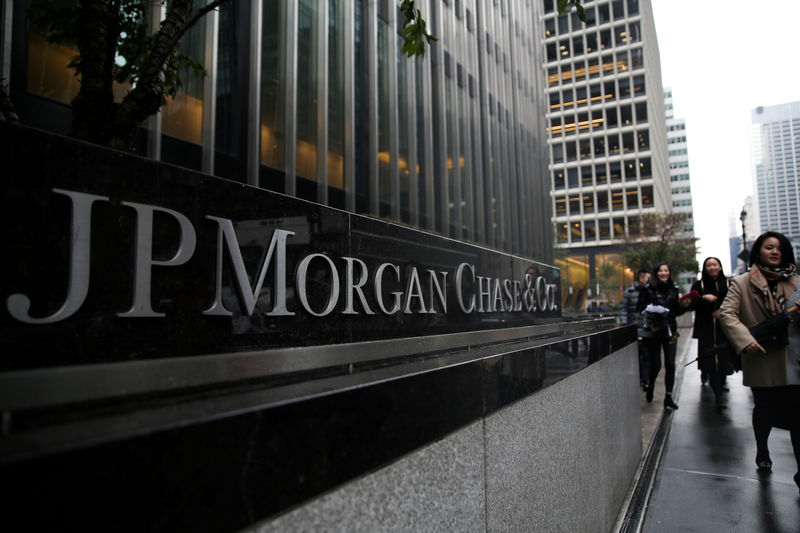By Saikat Chatterjee
LONDON (Reuters) - JPMorgan Chase (NYSE:JPM), a top player in the $5.1 trillion-a-day global currency market has started applying a new technology that enables machine-trading programs to learn from previous trades and search for the most profitable way to execute them.
Algorithmic trading is a growing trend in currency markets where banks have cut back on trading teams, relying more on automated computing strategies to trade efficiently.
Algos, as these programs are known, are used by market makers to search at lightening speed for platforms with deeper liquidity pools or break up large orders into tiny bits tor reduce market impact.
But large banks have been investing millions of dollars into technology to grab a greater share of the algo trading market.
JPMorgan told Reuters its new algorithm -- named DNA or Deep Neural Network for Algo Execution -- effectively combined what a multitude of algos currently do, into a single strategy and allowed the framework to judge how a client order should be executed.
For example, a typical time-weighted average price order executed by an algorithm may aim to buy a particular amount of currency over a few minutes or hours. But if the order is not executed within that time frame, the machine will trade aggressively toward the end to buy the required amount.
The new algo aims to take that decision-making process one step further by determining on how best to execute the transaction, based on results of past trades.
The algo has already been deployed for trading G7 currencies such as the euro, dollar and sterling, where it has access to data from thousands of past trades.
"The objective of an algo is to minimize market impact by executing in an efficient and timely manner," Chi Nzelu, head of macro eCommerce at JP Morgan, told Reuters.
"What we have done is establish a neural network using a machine learning technique which determines how to place the order, at what price and execution style."
Unlike equities which trade on exchanges, currency trading takes place on a multitude of platforms, enabling the usage of such automated trading strategies.
Trading platform EBS estimates as much as 70 percent of orders on its platform now originate from algorithms, whereas in 2004, all trading was undertaken by humans.
JP Morgan's own trading platform too has seen algorithmic turnover surge.
Order volumes of over $5 million rose 50 percent on an annual basis, and 80 percent of orders were driven by algos, the bank said, adding that December had set a record for its algo franchise in terms of orders as a proportion of spot turnover.

A report by Greenwich Associates last week found JP Morgan and Citibank were at the top of the field in of electronic currency trading, which now accounts for 80 percent of global turnover.